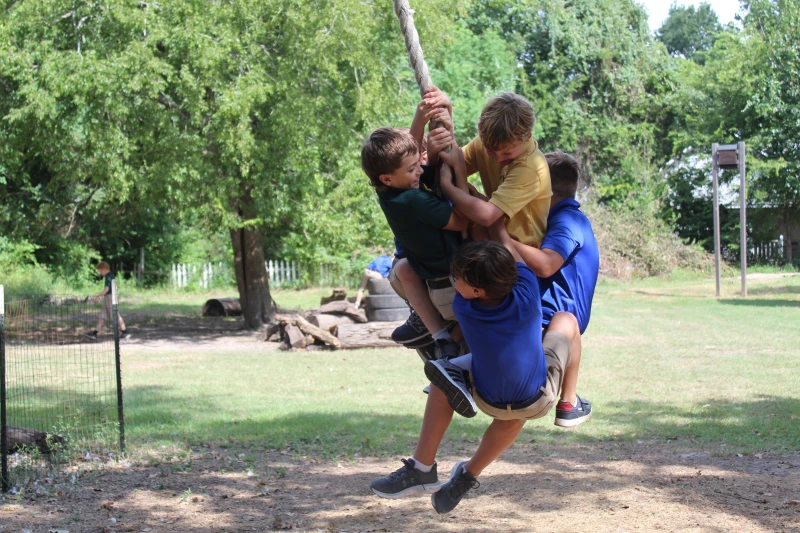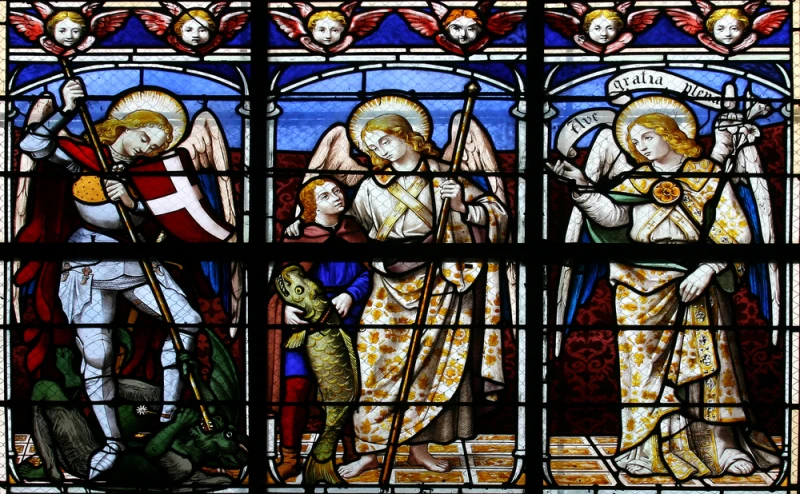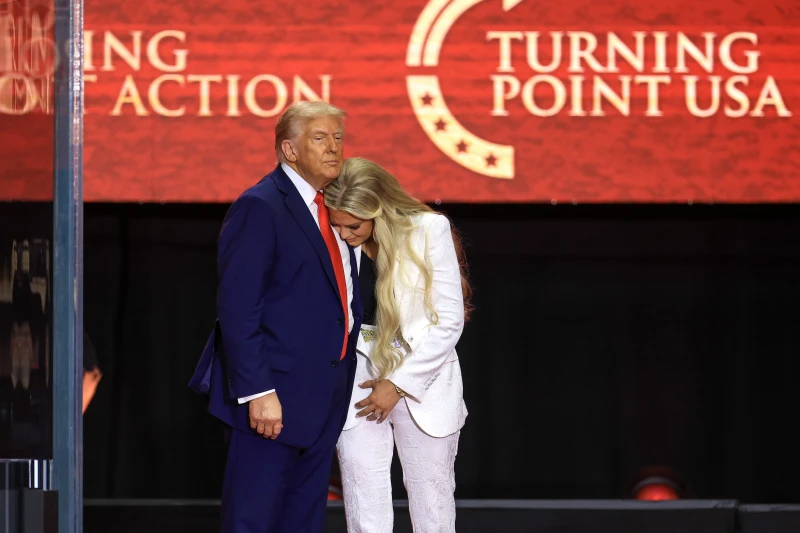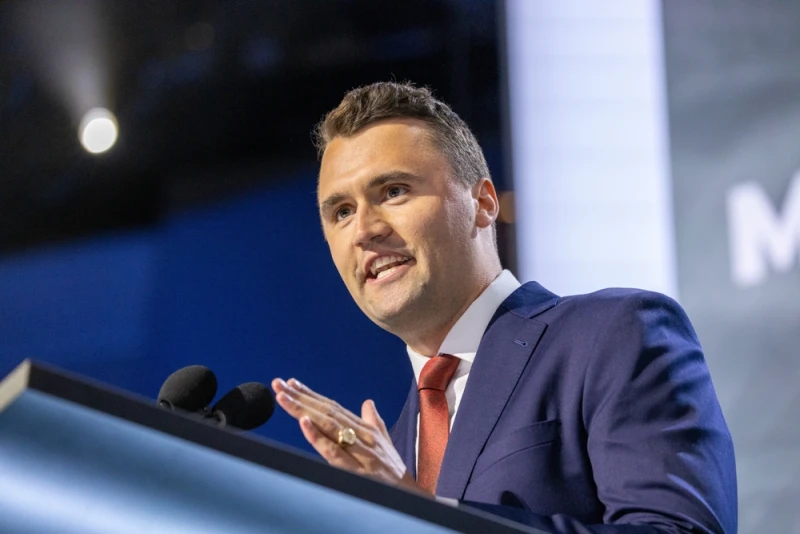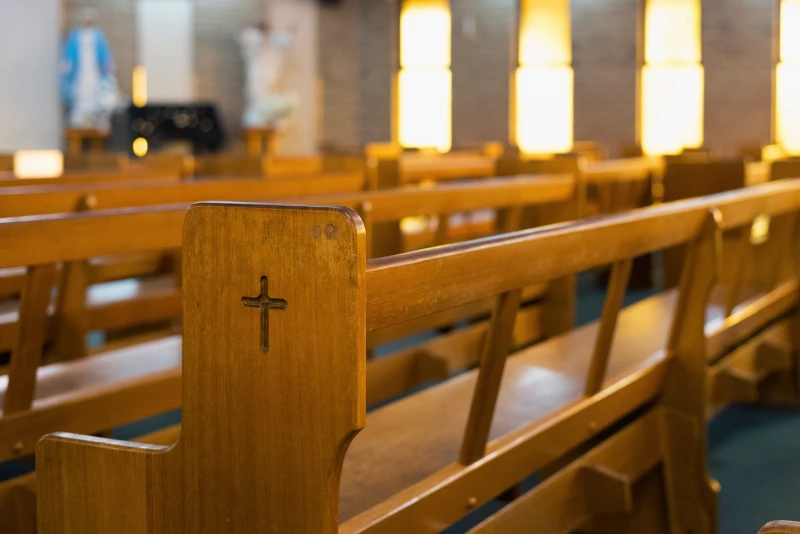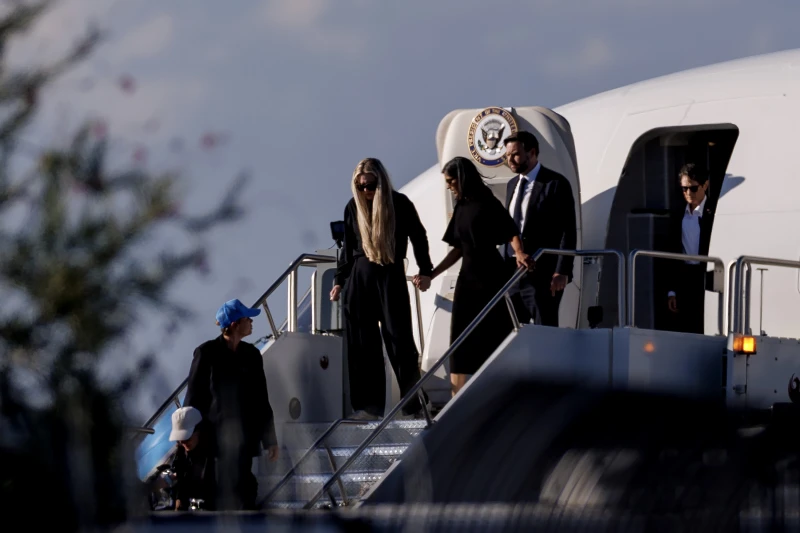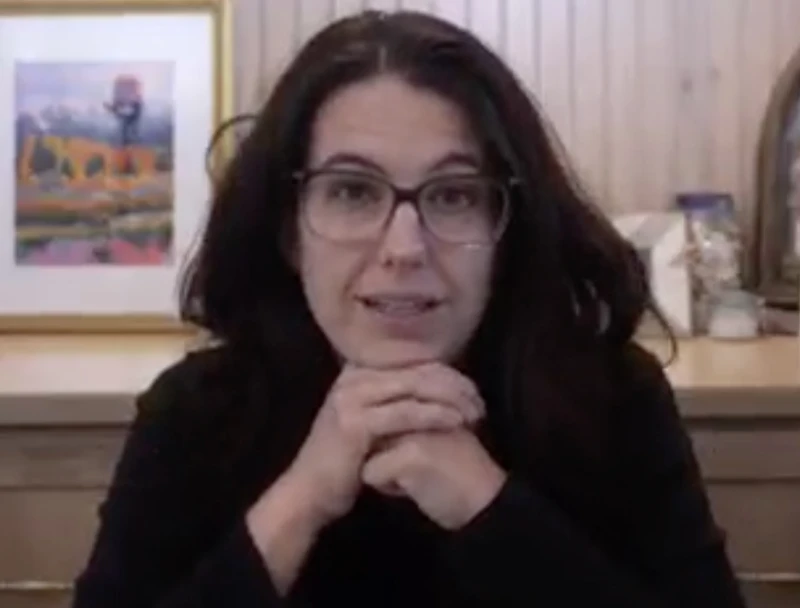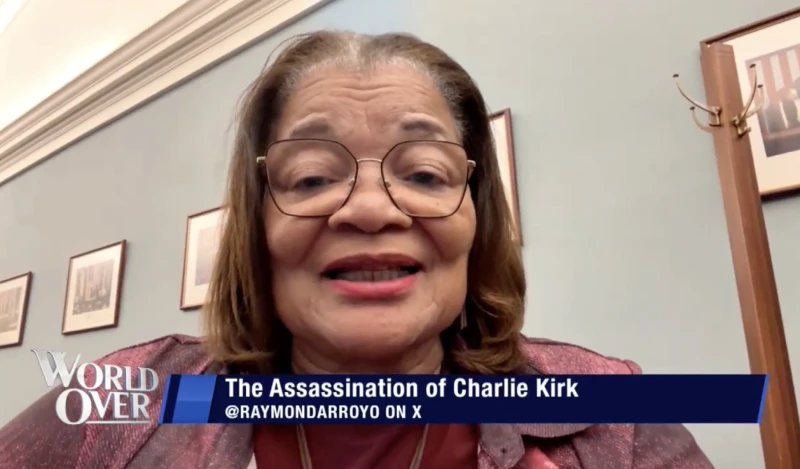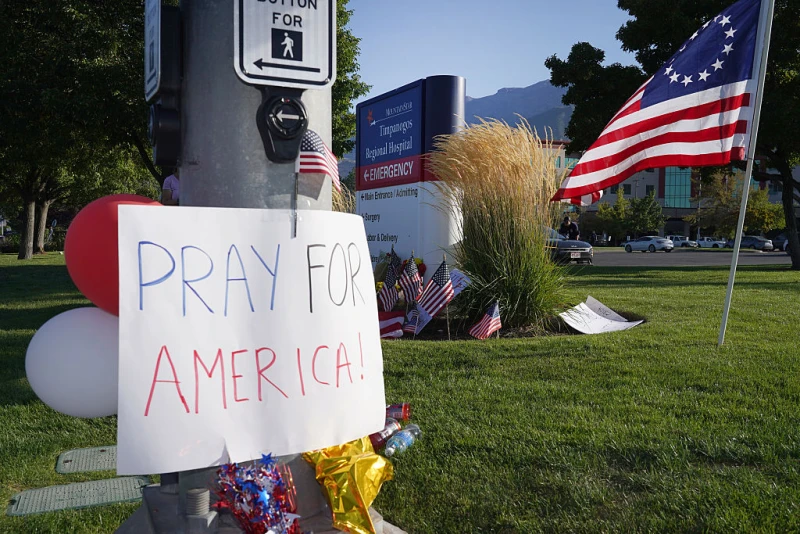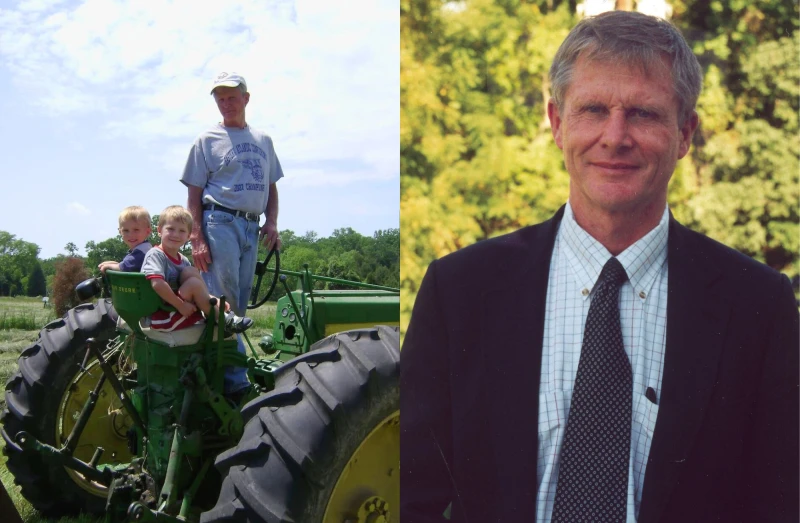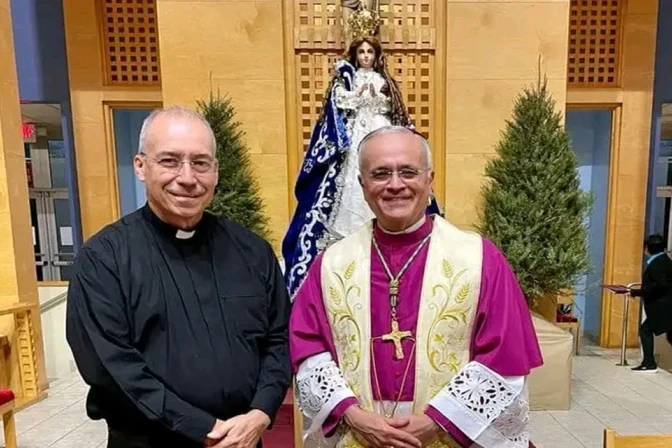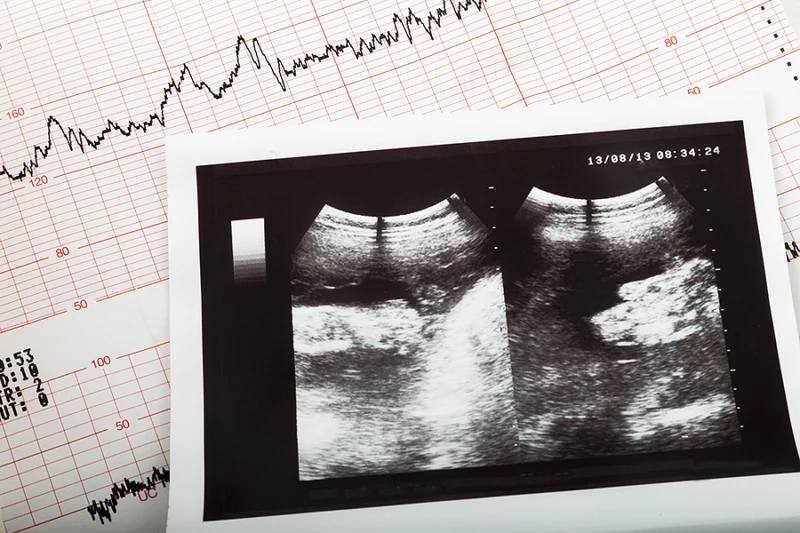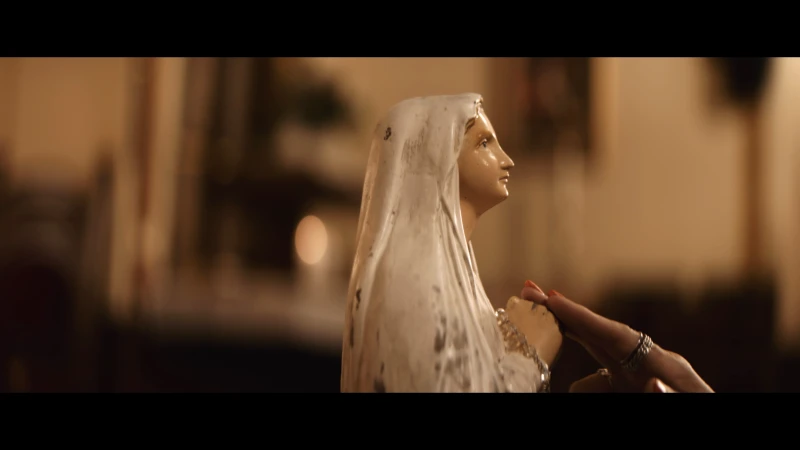

The broken Virgin Mary statue Kevin Matthews found in a dumpster. / Credit: ODB Films
CNA Staff, Oct 4, 2025 / 08:00 am (CNA).
Kevin Matthews was at the top of his game as one of the most famous on-air radio personalities in Chicago in the 1980s and ’90s. He was partying with professional athletes and celebrities and posting 10 million listeners a week at the peak of his popularity.
All of that changed when he received a life-altering medical diagnosis. Yet the biggest change in his life happened when he found a broken Virgin Mary statue in the trash.

“Broken Mary: The Kevin Matthews Story” is a new documentary recounting Matthews’ true story of fame, brokenness, and finding redemption in Jesus Christ thanks to his devotion to the Blessed Mother. The documentary will be in theaters for one night only on Oct. 7, the feast of Our Lady of the Rosary.
Matthews was born and raised in Pontiac, Michigan, in a Catholic household. As a child he struggled to read and write, though it wasn’t until he was an adult that he discovered he was dyslexic.
In order to prevent himself from getting beaten up by both kids in his neighborhood and his physically abusive father, he used comedy and making others laugh as a shield he could hide behind.

In college Matthews was first introduced to radio through his roommate’s hosting of a show at the student station. In 1987, he began his career with “The Loop” AM 1000 in Chicago. It was here that he rose to fame and became known for his edgy humor, sharp wit, and comedic characters — the most popular being “Jim Shorts.”
Yet after years of mega-success, his life began to unravel when he was diagnosed with multiple sclerosis (MS) in 2008. It became more difficult to be on-air and new radio personalities were on the rise. But it wasn’t until 2011 that he had a life-changing experience.
Matthews told CNA in an interview that while driving on his way home from just having been fired from his job, he “heard the Holy Spirit say, ‘Go and get your wife some flowers.’” He pulled into a flower shop he happened to be passing at the time.
“I got out of my car and I’m starting to walk towards the door and over by the dumpster, I see a statue of the Virgin Mary,” he recalled. “I walked over to it and there she is on the ground broken in half. She’s looking up at me. Her hands are broken. She’s sunk in the mud, so she’s been there for a while, she’s got garbage on her.”
“And I’m a zombie Catholic at that point, I’m not religious,” he said, “but I knew at that moment, no one treats our Blessed Mother like that.”
“I just was appalled, but then I heard the voice of Christ say to me, ‘Will you deny me? Will you deny my mother?’ And I was like, ‘What do I do?’”
Matthews entered the store and told the store clerk that he wanted to buy the broken Mary statue out by the dumpster. Though the store clerk said it was not for sale, he recognized Matthews’ voice from the radio and allowed him to take the statue.
The statue weighed 73 pounds and due to his MS and a recent snowstorm, it took Matthews nearly an hour to get the broken Mary statue from out of the ground and into the back of his car.
“I remember I turned the heat up and I said, ‘Mary, I will take care of you for the rest of my life,’” Matthews shared.
He called a priest friend and told him about the broken statue. The priest told him about a sculptor who could fix her. Matthews took the broken Mary and was told that she could be completely restored.
“That was the first time I really cried in front of a total stranger and said, ‘Don’t you dare touch her.’ I said, ‘That is me.’ And I said, ‘She’s broken like me. Just keep her broken. Just put her together, keep her hands broken, don’t paint her — she’s broken Mary,” he said.
From then on, Matthews began to go back to Mass, he learned how to pray the rosary, and he completely left his life of luxury to instead take his broken statue of Mary to parishes across the country to share how his life was radically changed by the Blessed Mother.
Matthews said he hopes the film will show “that we’re all broken, but we’re loved by God and just go to him … I’ve never been happier in my life.”
Read More





